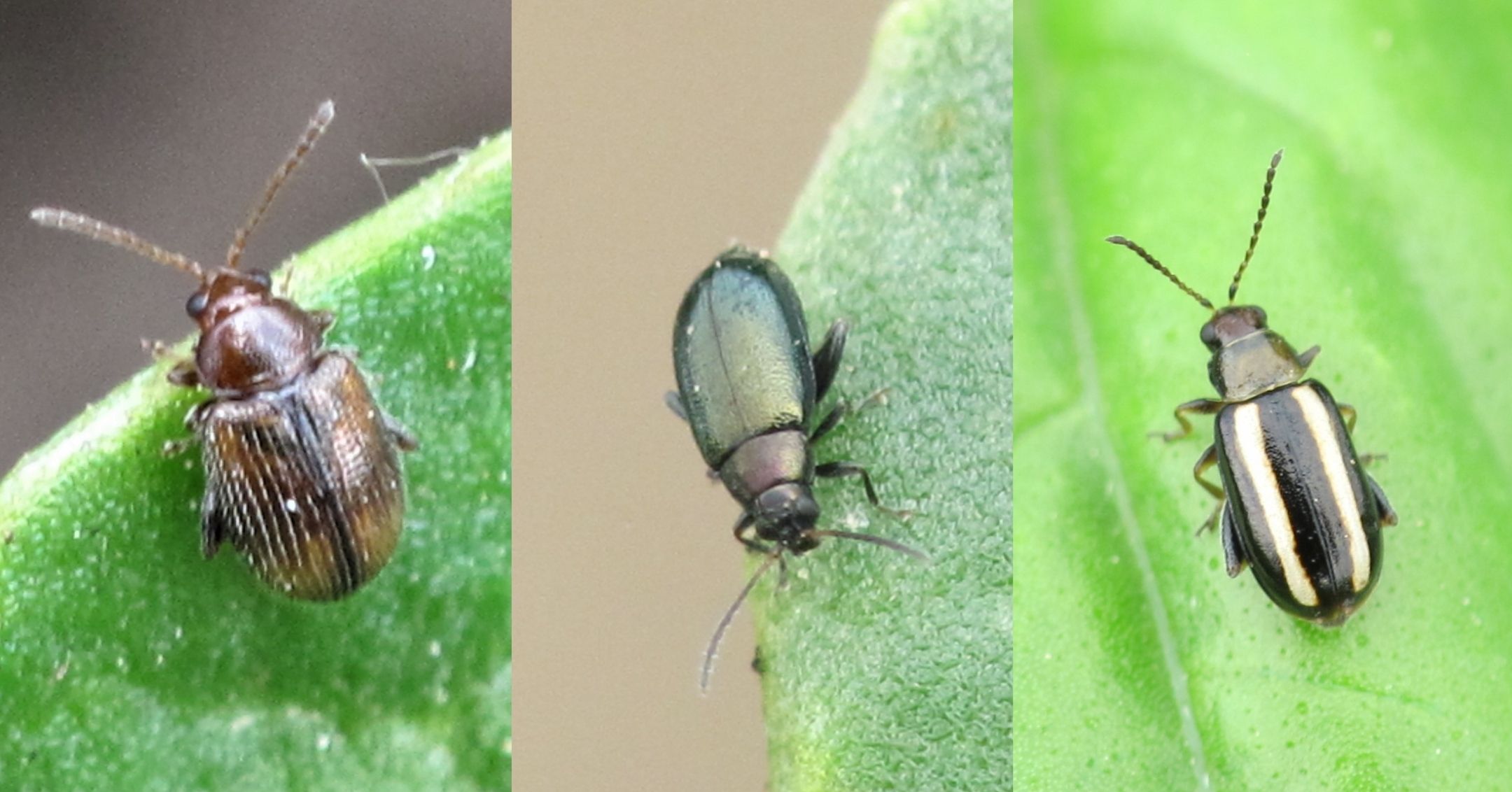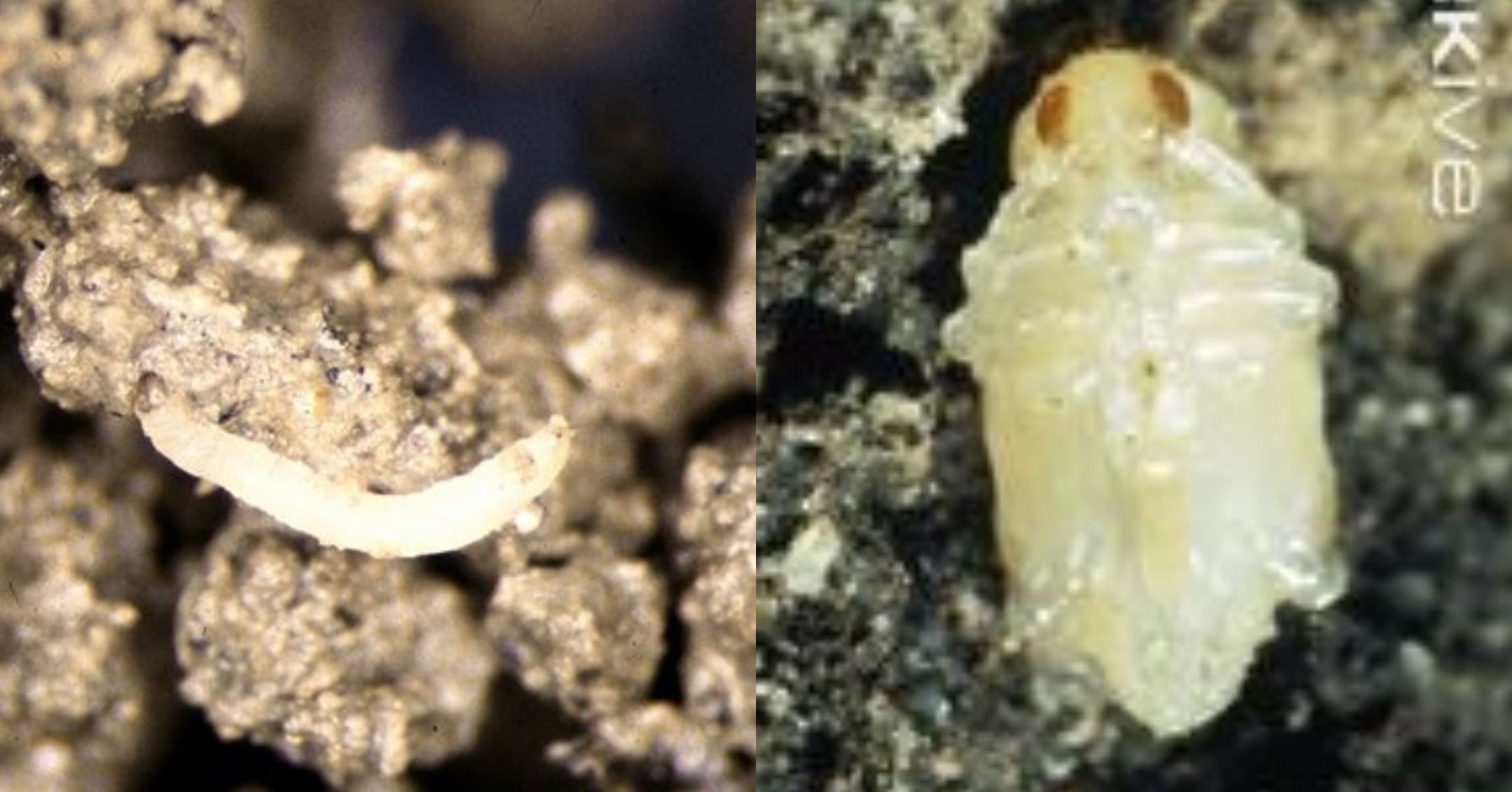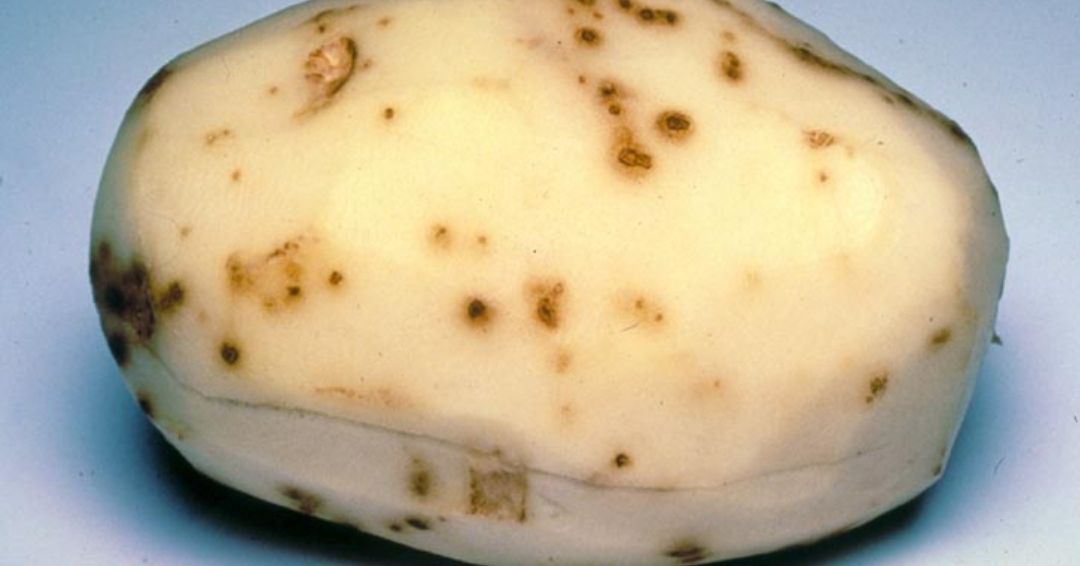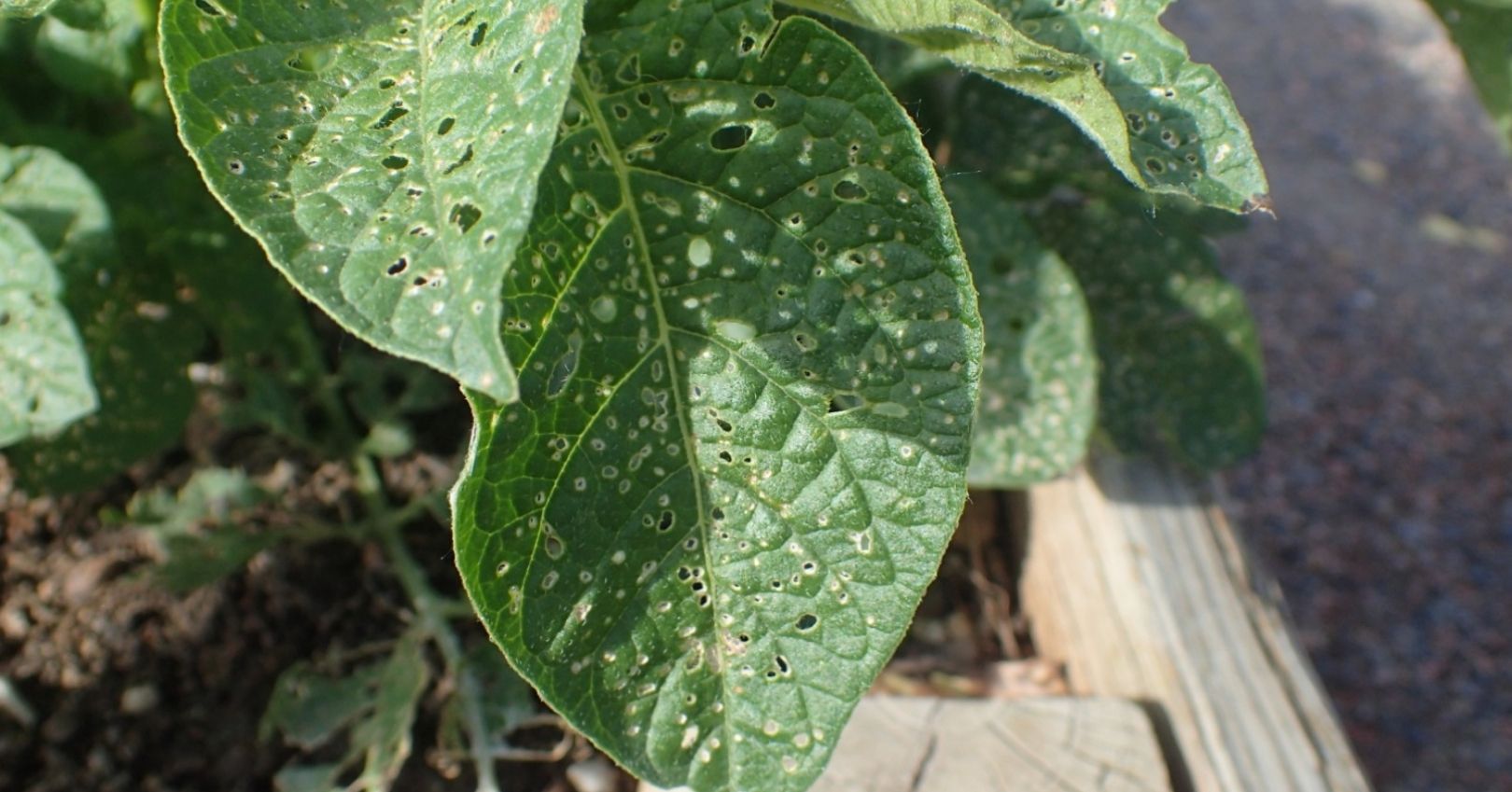Flea Beetles




Description
Adult: About 1/8 inch long with small dark metallic bodies and enlarged hind legs that enable them to jump long distances (hence the name “flea”). Some adult flea beetle species are striped.
Egg: Elliptical in shape, and white to yellowish gray. Laid in clusters or singly in the soil at the base of host plants.
Larva: Small, white, and worm-like with a brown head.
Pupa: Small and cream to white; pupate in the soil.
Life History
Flea beetles overwinter as adults in protected areas under soil clods, plant debris, and weeds. They emerge from overwintering sites in mid- to late- spring and mated females lay eggs in the soil at the base of host plants. Larvae feed on below-ground portions of the plant. Pupation then takes place in the soil and adults emerge to feed on above-ground plant parts. One to three generations of flea beetles are possible, depending on the species of flea beetle and temperatures.
Damage
Larvae can reduce plant health by feeding on roots and fine root hairs, but this does not usually cause economic loss. However, some species, such as the tuber flea beetle, may cause significant damage in potato tubers, leaving shallow, winding grooves on the tuber surface or burrowing into the tubers, causing tunnels filled with frass that may stain the potato. Some flea beetle larvae may tunnel in carrots. Most damage is caused by adult flea beetles and occurs as shallow pits and small rounded, irregular, holes in the foliage, cotyledons, and stems of host plants.
Host plants include those in the brassica (kale, broccoli, cabbage, etc.), solanaceous (tomato, potato, eggplant, etc.), and cucurbit (squash, pumpkin, melon) families. Non-crop hosts include alder, currant, evening primrose, sedum, skunkbrush, sumac, willow, and many weeds and grasses. Plants less tolerant to flea beetle damage include cole crops (such as cabbage), edible greens, and seedlings.
Monitoring
- Use yellow sticky traps and visual scouting to monitor for flea beetle presence. Place traps near host plants as soon as seedlings emerge. Also, scout susceptible plants for the presence of flea beetles.
- Inspect crops. Identify for flea beetle adult injury (small holes in leaves) near field borders with cruciferous weeds, such as mustards. Adults overwinter on weeds, and fly into host crop fields in the early season.
Management
Cultural
- Avoid planting susceptible crops after potatoes. Crop rotations are generally not effective against flea beetles because of their extreme mobility, however, in potato crops, potato tuber flea beetle populations tend to be greater in areas where potatoes were previously planted.
- Control weeds around planting sites. Weeds can provide food sources for flea beetle larvae development.
- Plant crops as late as possible, when feasible. Adult flea beetle populations generally decline throughout the summer, and warmer temperatures can help plants outgrow feeding damage.
- Plant trap crops. Before you plant your main crop, plant a highly favored trap crop such as radish, to attract flea beetles away from the main crop. Flea beetle adults will be attracted to the earliest and tallest plants and can be controlled in trap crops with insecticides or physical removal (e.g., bug vacuum or harvesting).
- Use companion crops and living or non-living mulches to obscure host plants from the flea beetles. Companion crops such as bunching green onions, dill, and marigolds, can help divert flea beetles from feeding on main crops. Living mulches such as legumes (e.g., clover and vetch), as well as non-living mulches, can also be used to obscure host plants from flea beetles.
- Use row covers during seedling establishment. Remove row covers during flowering to allow for pollination.
- Eliminate old crop debris and other surface trash. This will help remove overwintering sites for adults.
Chemical
Flea beetle damage is most severe in the spring. Thus, monitoring for their presence early in the season can indicate whether insecticides are necessary. Seedlings are less tolerant of flea beetle damage and may require a treatment if there are 1-5 flea beetles per plant or defoliation reaches 10-30%.
Biological
Natural enemies of flea beetles include Microctonus vittatae (parasitic wasp), entomopathogenic nematodes, white muscadine (fungal pathogen), and generalist predators such as lacewing larvae, adult bigeyed bugs, and damsel bugs. M. vittatae wasps kill flea beetle adults when they emerge after development. The larvae of M. vittatae also sterilize female flea beetles as they develop inside her body.
More Information
Flea Beetle Management

